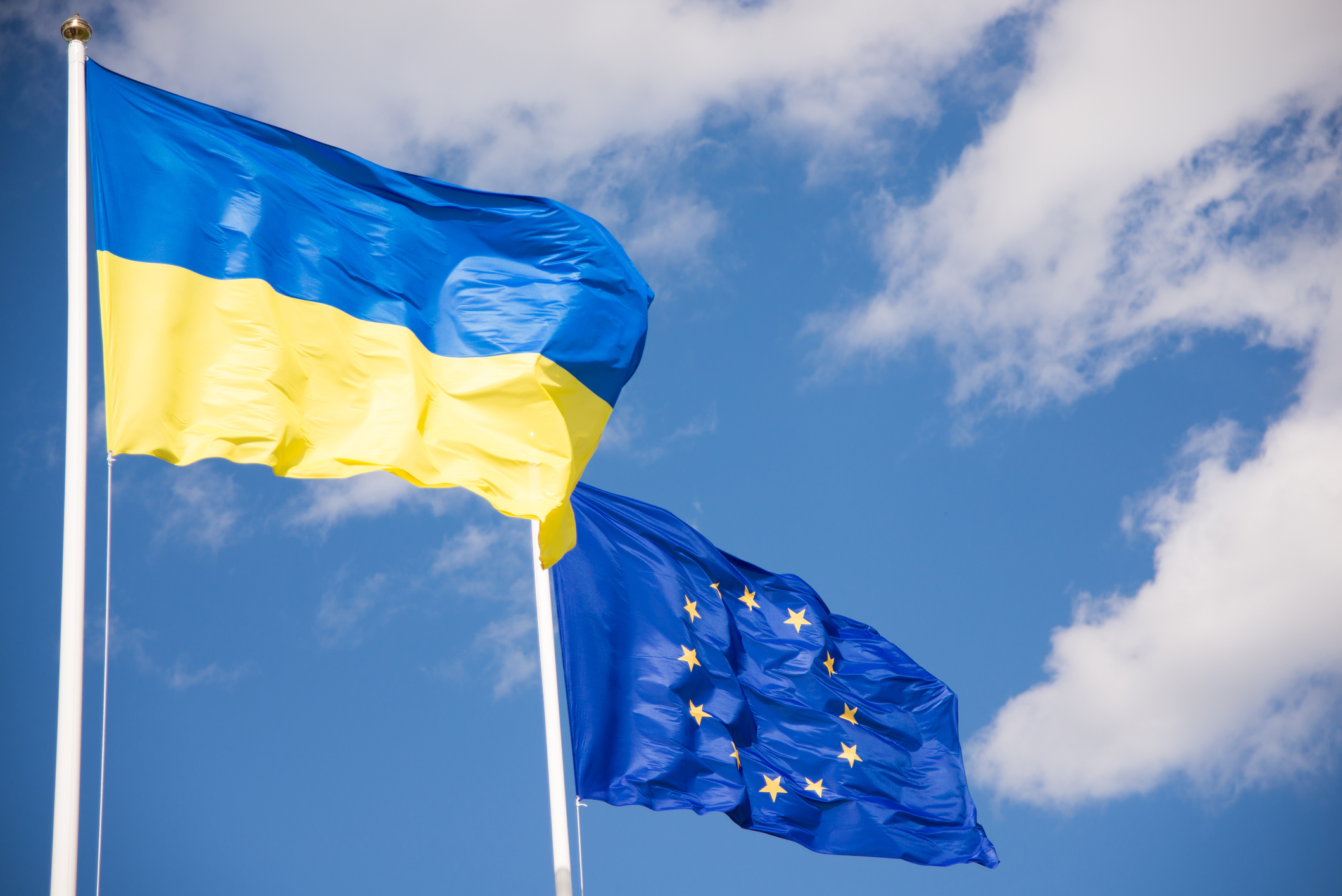By Pierre Tran
Paris – There is confidence the European Union will find a way to beat Hungary’s blocking of a budget to provide €50 billion ($54 billion) of financial aid to Ukraine when the E.U. summit meets this week, a senior Ukrainian official said Jan. 30. “I am confident the E.U. would find a mechanism to overcome that,” the official said, referring to Budapest’s opposition to the European Union support for Ukraine, which is struggling in response to the Russian invasion.
There had been an “important meeting” the day before, between the Hungarian foreign minister, Peter Szijjarto, and his Ukrainian counterpart, Dmytro Kuleba and Andriy Yermak, the Ukrainian chief of staff in the president’s office, the Ukrainian official said.
That meeting left them feeling optimistic, the official added. The chances were the E.U. would find a way to get Hungary to drop its veto against that budget.
Consensus is needed, so the E.U.member states need to win over the Hungarian prime minister, Viktor Orban, who has blocked a proposed budget which included support of €50 billion over four years for Kyiv.
Hungary is keen to keep close ties to Russia, which has led to Orban resisting E.U. efforts to help Ukraine’s war effort. Kyiv is also struggling to win further backing from the U.S. Congress, which is mired in a domestic dispute with president Joe Biden.
Orban withheld Hungary’s support when E.U. leaders met in December to adopt a revised budget to help Ukraine, forcing the other 26 member states to find a way to get that financial support through to Kyiv.
The need for consensus has placed effectively an institutional blocking power in Orban’s hands, who has said he would support E.U. financial support for Ukraine, but on condition there were an annual vote of approval by all 27 E.U. members.
That is seen by the other 26 member states as placing the E.U. in the hands of Budapest, which has made clear its opposition to Ukraine’s attempt to recover the 18 percent of national territory seized by Russian military forces, which are now firmly dug in.
Orban’s call for an annual vote on E.U. support amounts to “blackmail,” said José Manuel Fernandes, a Portuguese member of the European Parliament and spokesman for the center-right European People’s party, U.K. daily The Guardian reported Jan. 30.
The Ukrainian official gave a glimpse of the inequality of the war in numbers, with the Russian forces firing 60,000-70,000 shells a day, with Ukraine firing 10,000 shells a day.
“This is the reality for which the world was not prepared,” the official said.
The E.U. has pledged to send over one million shells to boost the Ukraine war effort, and managed to ship around 30 percent of that, the official said.
France said Jan. 18 it will send to Ukraine 3,000 artillery shells a month from the end of January, which compared to the previous monthly rate of 2,000 shells, and an initial monthly rate of 1,000 after Russia launched a bloody invasion on its neighbor.
Those shells are part of a French military aid package announced Jan. 18, which included six Nexter Caesar truck-mounted artillery pieces and 40 air-launched Scalp cruise missiles, adapted to be fired from Russian-built fighter jets flown by the Ukrainian air force.
France played host Jan. 18 to a gathering of allies to form the artillery coalition to help arm the Ukrainian army, beset by the larger Russian forces.
The French armed forces minister, Sébastien Lecornu, said Jan. 18 France could deliver 78 Caesar cannons this year, if coalition allies placed orders for the artillery pieces. Those 78 guns included the six due to be delivered in the next few weeks.
France will draw down €50 million from its support fund for Ukraine to supply 12 Caesar guns of the remaining 72 units, he said, leaving 60 cannons to be financed by the artillery coalition partners. There are some 50 nations in the weapons coalition, and the other armament coalitions to help Ukraine are air defense systems, armored vehicles, aircraft, and naval assets.
Meanwhile in Ukraine, president Volodymyr Zelenskiy is struggling with military problems, with general Valery Zaluzhny, the commander-in-chief, refusing a request to resign from the top military post.
Ukraine was effectively in a deadlock, Zaluzhny told The Economist, a British weekly magazine, in November.
“There will most likely be no deep and beautiful breakthrough,” he said.
Kyiv will enter a third year of combat with Russian forces in February, and Ukraine is struggling against a superior military force, as support appears to be waning among allies.
Featured Graphic: Photo 58311067 | Ukraine © Valentyn Natalenko | Dreamstime.com


